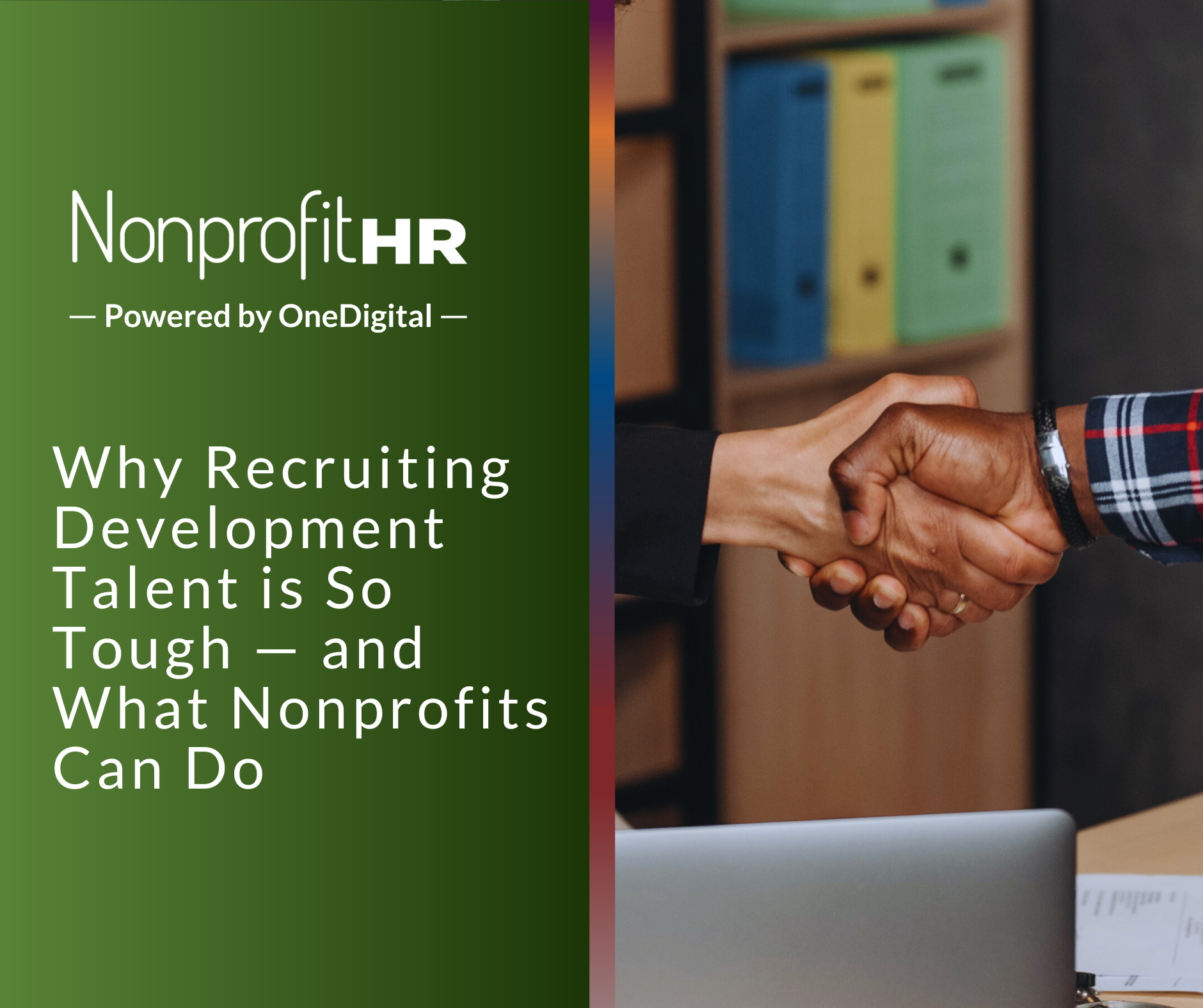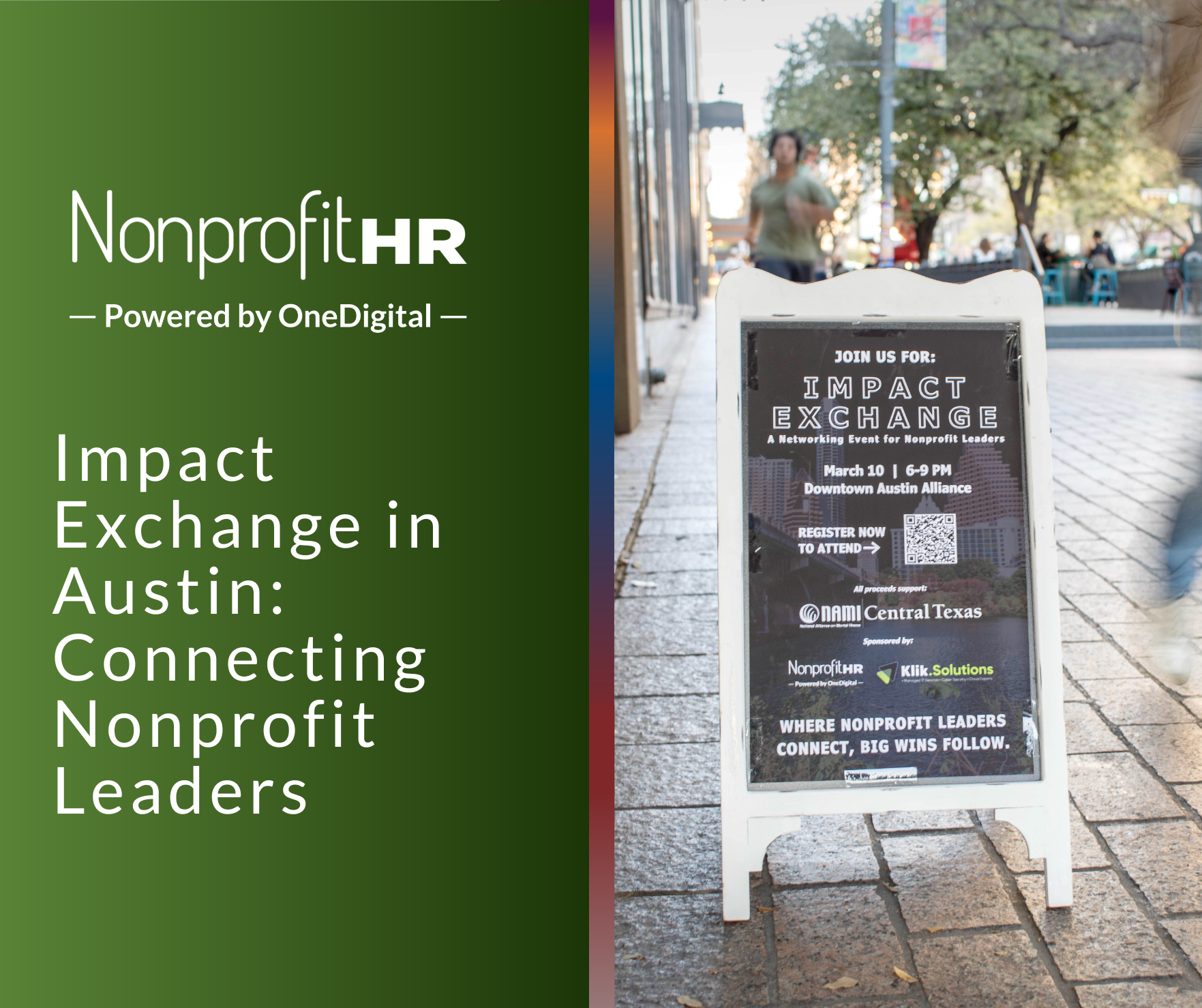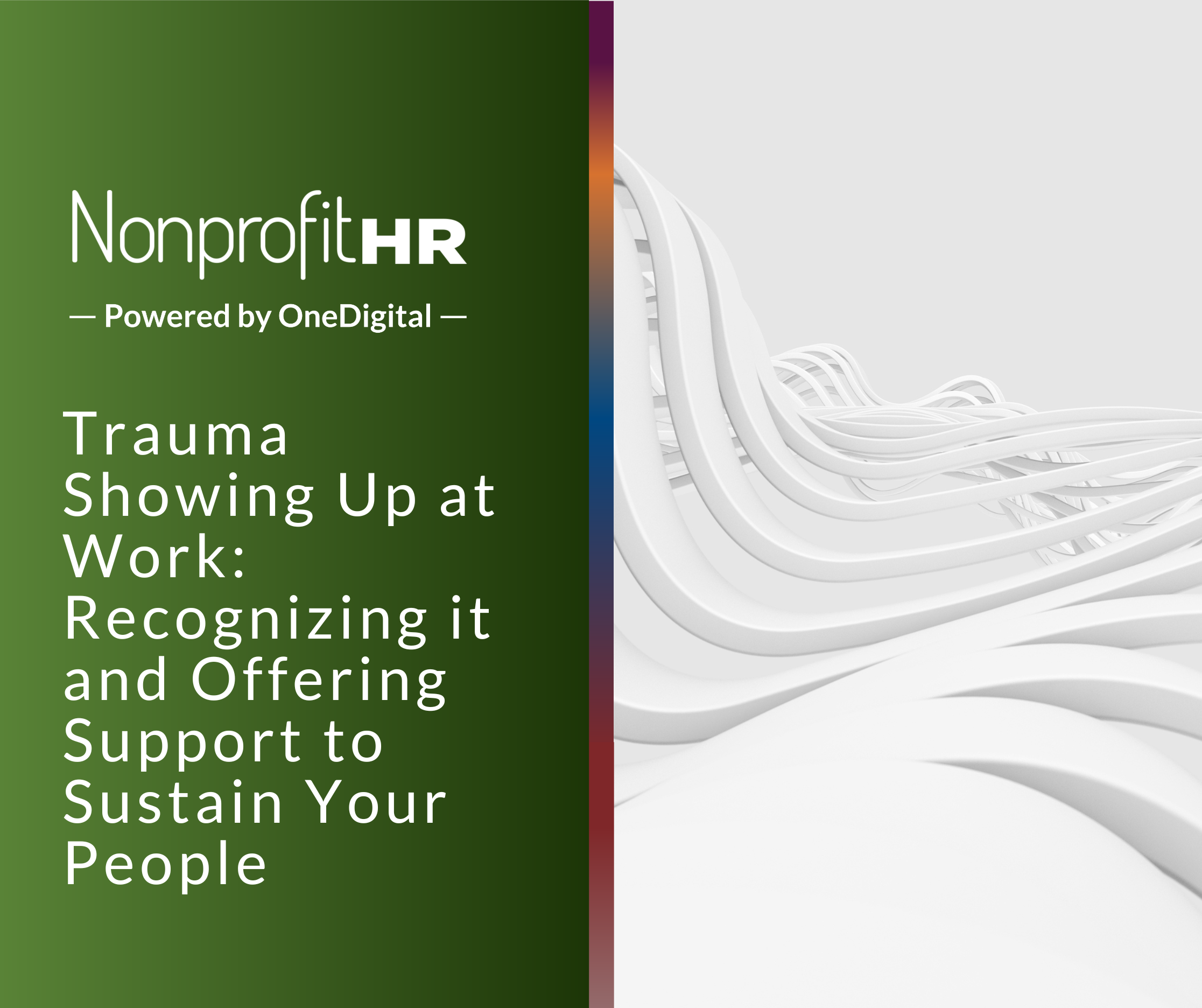WTOP: 5 ways nonprofits can…
In today’s climate of uncertainty — from executive orders, economic shifts due to tariffs, labor market changes, global events — nonprofits are finding themselves balancing an increased demand for services with potentially limited resources. This reality places added pressure on HR leaders to make strategic, data-informed decisions that ensure both sustainability and staff well-being. During these moments, a thoughtful approach to total rewards management can help support staff morale, reinforce equity and keep your organization aligned with its mission.
Here are a few practices nonprofits may want to continue prioritizing and some they might consider adjusting to best support their teams, as we all navigate an ever-changing environment.
Practices Worth Continuing
Keeping Equity at the Center
While it might be tempting to pause equity-related initiatives, continuing to assess and address pay equity can go a long way in reinforcing trust and inclusion. Ongoing reviews of compensation across different employee groups can help ensure fairness, especially when resources are limited.
Maintaining Open Communication
Being transparent doesn’t mean having all the answers, it means being willing to share what you do know. From the 350+ organizations our firm surveyed, 72% regularly remind employees about the benefits and policies available to them during critical times. Even when decisions are difficult, consistent and thoughtful communication helps employees feel more secure and included in the organization’s journey.
Emphasizing Non-Monetary Recognition
When budgets are tight, non-financial rewards can still be meaningful. Whether it’s flexible work arrangements, peer recognition or learning opportunities, small gestures can have a lasting impact on employee engagement.
Staying Informed Through Benchmarking
Compensation trends continue to shift, and staying aware of peer practices can help organizations make informed, responsible decisions. Even a light-touch benchmarking exercise can offer valuable insight.
Aligning Rewards with Organizational Values
It’s helpful to revisit whether your total rewards approach reflects the values your organization champions. For example, if your mission emphasizes community well-being, offering mental health support or family care benefits could strengthen alignment.
Practices to Reconsider
Freezing Compensation Without a Plan
While temporary pay freezes may be necessary, it can be helpful to pair them with open communication and a plan for revisiting the issue. Providing employees with context and a roadmap, even if tentative, can help preserve morale.
Taking a One-Size-Fits-All Approach
Employee needs and preferences vary widely. Recent research suggests that employers who provide personalized benefits, such as around workplace flexibility, are better positioned to build employee trust. Gathering input through surveys or informal conversations can guide more responsive and tailored benefits strategies.
Relying Too Heavily on Passion for the Mission
A strong sense of purpose is often what draws people to nonprofit work, but it shouldn’t be expected to replace fair compensation. Recognizing both the mission-driven and professional needs of staff helps create a more sustainable workplace.
Delaying Strategy Conversations
It’s easy to postpone discussions about compensation and benefits during uncertain times. But these moments can be the most important to reflect and recalibrate. Even small steps, like revisiting your compensation philosophy or ensuring your benefit program is meeting the needs of staff and identifying where you may be able to trim programs no longer bringing value, can make a difference in building trust and reinforcing your organization’s commitment to well-being.
Overlooking Shifts in Workforce Expectations
Workplace expectations have evolved in recent years. From flexibility to wellness benefits, staying attuned to emerging trends can help your organization remain attractive and supportive to current and future employees.
A Thoughtful Path Forward
There’s no perfect playbook for uncertainty, but there are thoughtful choices we can make along the way. By continuing to listen, learn and adapt, nonprofit leaders can strengthen their people practices and build more resilient teams — while staying grounded in their mission.
Need support? If your organization could benefit from thought partnership or guidance on any of the strategies outlined above, we’re here to help. Reach out to our team today to explore how we can support your total rewards planning.
Contributing Author
Lisa McKeown
Managing Director, Total Rewards
Nonprofit HR
View Lisa’s bio.






























